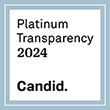Election Outcomes and Reproductive Health: The Surge in Vasectomy Appointment
- Chris Tonozzi
In the wake of the 2024 U.S. presidential election, healthcare providers across the nation have observed a remarkable surge in vasectomy appointments. This trend appears to be a direct response to concerns over potential changes in reproductive rights under the new administration. Notably, Planned Parenthood reported a staggering 1,200% increase in vasectomy appointments immediately following Election Day.
👉 Newsweek 🔗
Regional Insights
Colorado
Dr. Chris Tonozzi reported a tenfold increase in vasectomy requests the day after the election, highlighting the immediate impact of political events on personal health decisions.
Indiana
Dr. Don Snyder experienced over ten times the usual number of registrations daily. Despite Indiana already being one of the most restrictive states regarding reproductive rights, Dr. Snyder noted that such political events serve as catalysts, prompting individuals to act on pre-existing plans. He likened this phenomenon to personal events that move decisions from the “back burner to the front.”
Florida
Dr. John Curington reported similar trends, including when patients sought immediate procedures. One patient requested an emergency vasectomy, underscoring the urgency felt by some individuals. Additionally, Dr. Alex Galante observed a substantial increase in appointments, especially among men in their 20s with no children, following the upholding of a state abortion ban during the election.
Broader Context:
This surge in vasectomy appointments is part of a larger pattern of individuals seeking to secure reproductive autonomy amid political shifts. Following the 2024 election, there was also a notable increase in appointments for intrauterine devices (IUDs) and sales of emergency contraceptives. Planned Parenthood reported a 760% increase in IUD appointments and a 350% rise in birth control implant appointments immediately after the election.
Online retailers and telehealth providers experienced similar trends. For instance, Wisp, a reproductive telehealth company, reported a 1,000% increase in sales of emergency contraception in the days following the election, particularly in states with existing abortion bans.
👉CBS News 🔗
Implications for Healthcare Providers:
The post-election surge in vasectomy requests presents both challenges and opportunities for healthcare providers:
➡️ Capacity Management: Practices may need to adjust scheduling and resources to accommodate the increased demand. This could involve extending clinic hours, hiring additional staff, or streamlining consultation processes to ensure timely access to services.
➡️ Patient Education: With a significant number of younger men and individuals without children seeking vasectomies, it’s crucial to provide comprehensive counseling. Discussions should cover the permanence of the procedure, potential for reversal, and alternative contraceptive options to ensure informed decision-making.
➡️ Policy Awareness: Staying informed about legislative changes at both state and federal levels is essential. Understanding the evolving legal landscape enables providers to offer accurate guidance and support to patients navigating their reproductive choices.








